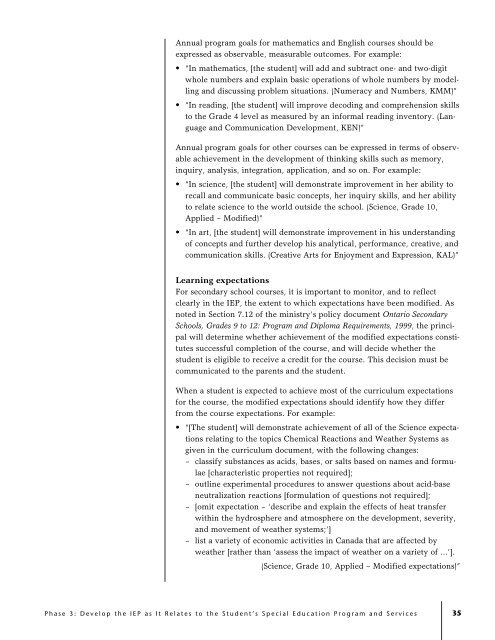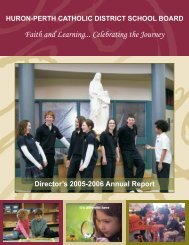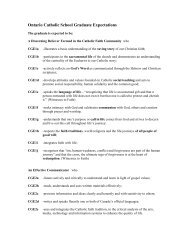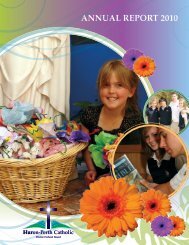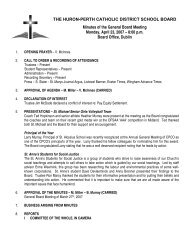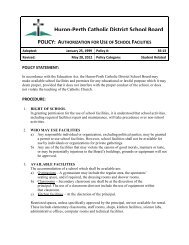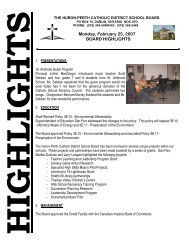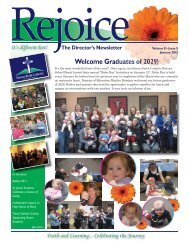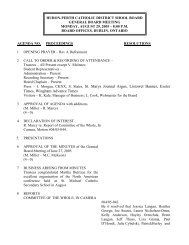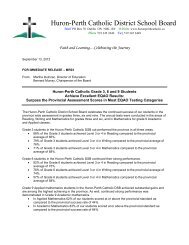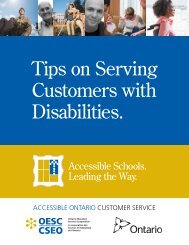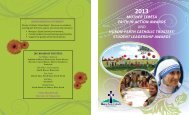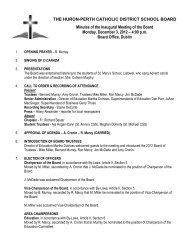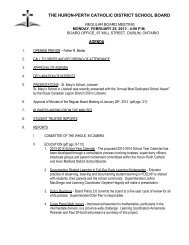The Individual Education Plan (IEP) - A Resource Guide, 2004
The Individual Education Plan (IEP) - A Resource Guide, 2004
The Individual Education Plan (IEP) - A Resource Guide, 2004
Create successful ePaper yourself
Turn your PDF publications into a flip-book with our unique Google optimized e-Paper software.
Annual program goals for mathematics and English courses should be<br />
expressed as observable, measurable outcomes. For example:<br />
• “In mathematics, [the student] will add and subtract one- and two-digit<br />
whole numbers and explain basic operations of whole numbers by modelling<br />
and discussing problem situations. (Numeracy and Numbers, KMM)”<br />
• “In reading, [the student] will improve decoding and comprehension skills<br />
to the Grade 4 level as measured by an informal reading inventory. (Language<br />
and Communication Development, KEN)”<br />
Annual program goals for other courses can be expressed in terms of observable<br />
achievement in the development of thinking skills such as memory,<br />
inquiry, analysis, integration, application, and so on. For example:<br />
• “In science, [the student] will demonstrate improvement in her ability to<br />
recall and communicate basic concepts, her inquiry skills, and her ability<br />
to relate science to the world outside the school. (Science, Grade 10,<br />
Applied – Modified)”<br />
• “In art, [the student] will demonstrate improvement in his understanding<br />
of concepts and further develop his analytical, performance, creative, and<br />
communication skills. (Creative Arts for Enjoyment and Expression, KAL)”<br />
Learning expectations<br />
For secondary school courses, it is important to monitor, and to reflect<br />
clearly in the <strong>IEP</strong>, the extent to which expectations have been modified. As<br />
noted in Section 7.12 of the ministry’s policy document Ontario Secondary<br />
Schools, Grades 9 to 12: Program and Diploma Requirements, 1999, the principal<br />
will determine whether achievement of the modified expectations constitutes<br />
successful completion of the course, and will decide whether the<br />
student is eligible to receive a credit for the course. This decision must be<br />
communicated to the parents and the student.<br />
When a student is expected to achieve most of the curriculum expectations<br />
for the course, the modified expectations should identify how they differ<br />
from the course expectations. For example:<br />
• “[<strong>The</strong> student] will demonstrate achievement of all of the Science expectations<br />
relating to the topics Chemical Reactions and Weather Systems as<br />
given in the curriculum document, with the following changes:<br />
– classify substances as acids, bases, or salts based on names and formulae<br />
[characteristic properties not required];<br />
– outline experimental procedures to answer questions about acid-base<br />
neutralization reactions [formulation of questions not required];<br />
– [omit expectation – ‘describe and explain the effects of heat transfer<br />
within the hydrosphere and atmosphere on the development, severity,<br />
and movement of weather systems;’]<br />
– list a variety of economic activities in Canada that are affected by<br />
weather [rather than ‘assess the impact of weather on a variety of ...’].<br />
(Science, Grade 10, Applied – Modified expectations)”<br />
Phase 3: Develop the <strong>IEP</strong> as It Relates to the Student’s Special <strong>Education</strong> Program and Services<br />
35


